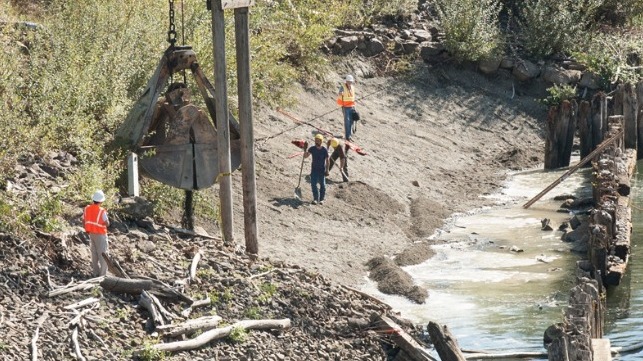Port of Portland Joins Settlement in Monsanto PCB Pollution Case

The Port of Portland, Oregon has joined a proposed $550 million class action settlement with Monsanto, Pharmacia and Solutia, Inc. that would resolve water pollution claims over polychlorinated biphenyls(PCBs). Monsanto was the sole American manufacturer of this product class, which was discontinued in 1977 due to environmental and health concerns.
PCBs are the main contaminant behind the cleanup effort in Portland's Lower Willamette River and the Portland Harbor Superfund site, a giant project with significant cost exposure for the Port of Portland. The Port had evidence that Monsanto became aware of how toxic and dangerous PCBs were during the time they manufactured their PCB containing products, and in the lawsuit, they alleged that Monsanto concealed that information.
“We joined national partners because we believed that it was important to hold Monsanto accountable for their products that caused harm to water systems across the nation, including our own Willamette River,” said Executive Director Curtis Robinhold. “The Port intends to use the settlement funds to continue the critical work of cleaning up environmental contamination to restore and preserve the healthy future of the region’s natural resources.”
If approved, the class action settlement will provide all 12 government plaintiffs with a monetary benefit, along with funds for significant expenses to protect and remediate their waterways. Once the Port of Portland receives its share, it intends to use the money to help fund its cleanup effort.
The other plaintiffs include the cities of Spokane, Tacoma, Portland, Berkley, Oakland, San Jose, Long Beach, San Diego, Chula Vista and Baltimore, plus the counties of Los Angeles and Baltimore. An additional 2,000-plus government entities across America also stand to benefit as a class.
The city of Seattle did not join the settlement and continues to pursue its own case against Monsanto. Seattle's claim centers on the contamination of the heavily-industrialized Duwamish River drainage, which feeds into Elliott Bay adjacent to the Port of Seattle. According to the city, PCBs were detected in 75 percent of about 1,000 samples from catch basins and drainage lines in the Lower Duwamish drainage.

that matters most
Get the latest maritime news delivered to your inbox daily.
Monsanto's Aroclor line of chlorinated biphenyl mixtures were durable and useful ingredients in hydraulic fluids, plastics, paints, copy paper, wire insulation and other products for industry and consumers. Compounds in this class are tasteless, odorless, bioaccumulative and persistent in the natural environment. PCBs are probably carcinogenic and are associated with a range of negative non-cancer symptoms in animals and humans, according to the EPA.
Based on historical records and documents produced during the trial, historians Gerald Markowitz and David Rosner assert that the evidence of systemic toxicity from polychlorinated biphenyls and related compounds dates back to the 1930s. They participated in the trial on behalf of the plaintiffs, and they claim that Monsanto was aware of scientific evidence of these products' environmental harm in advance of its discontinuation of PCB production in 1977.
